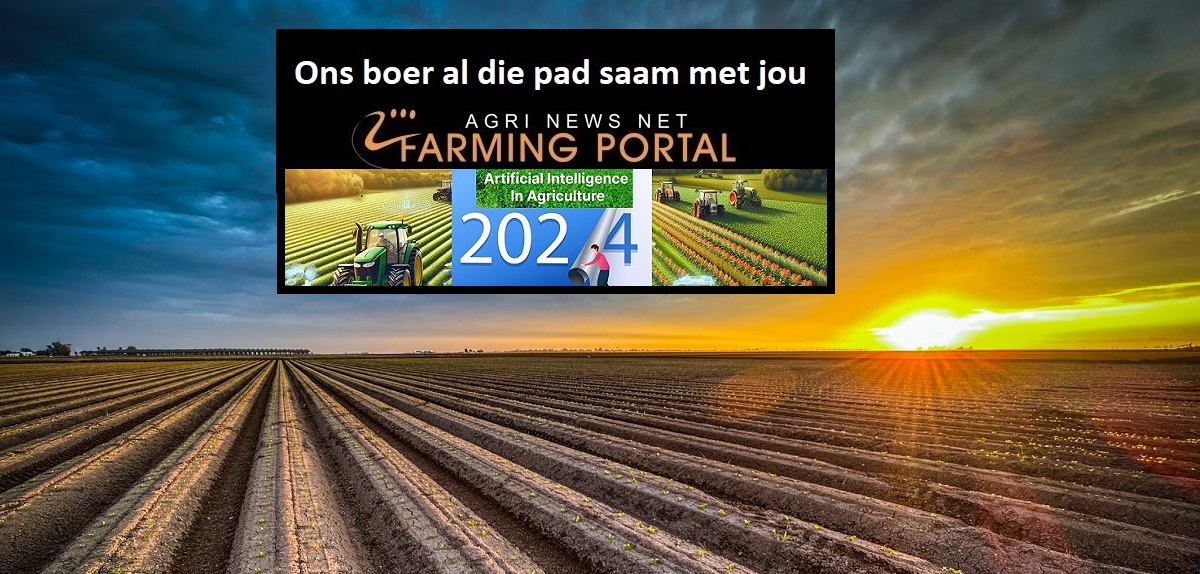Animal Science Professor and Zimbabwean cattle producer Lindiwe Majele Sibanda is on a mission to disprove the claim farmers don’t care about the environment.
But she also wants people to understand that farmers can only produce quality food that “nourishes the body and nourishes the soil” if they are economically supported to do so.
Her central message to a recent international animal science congress in Melbourne is that livestock are essential to the production of highly nutritious food and that science has a major role to play in strengthening the resilience of livestock food systems from farm to fork.
Professor Sibanda has a PhD in animal nutrition and an MSc in Agriculture Grassland Science and has bred cattle on a 600-hectare farm near Harare for the past 27 years  Australian sheep, cattle prices slump as El Niño scorches pastures
Australian sheep, cattle prices slump as El Niño scorches pastures
She is an Extraordinary Professor at the University of Pretoria, South Africa, serves as a policy advisor to numerous African governments and global institutions, and, among numerous international leadership roles, she is chair of the One CGIAR System Board (Consultative Group on International Agricultural Research) and has previously chaired the International Livestock Research Institution (ILRI).
On her recent visit to Australia Professor Sibanda shared with Beef Central several insights about what life is like for modern-day small holder cattle farmers like herself in Africa.
She said the world has forgotten about the importance of soil and needs livestock systems to restore the production of highly nutritious food, but farmers face a major challenge to do so in an environment of rising costs and diminishing returns.
All flesh is grass
Professor Sibanda was in Australiain July to deliver the keynote address to the joint Congress for the Australian Association of Animal Science (AAAS) and the Asian-Australasian Association of Animal Production (AAAP), an address given annually in honour of Gordon “Bill” McClymont, an Australian agricultural scientist, farmer, educator who is revered as a father of sustainable agriculture.
Two weeks ago on August 7 Professor Sibanda was awarded the prestigious MS Swaminathan Global Leadership Award 2024 in Chennai, India, which recognises individuals who make extraordinary contributions to sustainable development, particularly in agriculture.
Professor Sibanda said she was privileged to be asked to deliver the McClymont lecture, describing the late Professor as “one of Australia’s best kept secrets” and “a man I would love to have had as a mentor today”.
Gordon McClymont was renowned for sharing the phrase “All Flesh is Grass”, which he adapted from a bible passage to convey the universal importance of soil quality to all life and all livelihoods on earth.
In launching a degree program at the University of New England in Armidale in 1955, Professor McClymont said: “The economic health of this country, and so the standard of civilization which it will support, rests on the fertility of its soils and on the resultant productivity of its pastures, livestock and crops.”
“His credo was All Flesh is Grass – everything we produce comes from nature,” Lindiwe said in an interview with Beef Central.
“If we don’t look after nature, it will not look after us.”
This is a lesson she draws deeply upon from her own personal experience.
“I believe the first thing we have to demystify is the fact that farmers don’t care about the environment.
“They care.
“I remember my grandmother on her one-hectare plot.
“She had about 10 diverse crops, she had goats, she had free ranging chickens.
“Her aim in farming was to feed her family, feed the soil, and feed her pocket with some income.
“She played that balance very well.”
However, the green revolution and mono-cropping had led to the decline of many indigenous crops – so-called female crops or subsistence crops – which were deemed to have little economic value, she said.
(Most of the female crops have now become “opportunity crops” because of their nutrition and resilience to climate change, Professor Sibanda further explained).
And as a result, “we forgot about the soil”.
“We had maize, maize, maize, maize for over 10 years because that is where the money was, but we then forget that we would need money for fertiliser, and the soil needed organic matter.
“Over time no one had cattle or a mixed production system where you get the manure to fertilise your soil.
“Everybody is dependent on chemical fertilisers, and we have mined the soils.”
African farmers face spiralling costs and collapsing returns
Climate change has caused a shift from structured wet and dry seasons from her childhood to more erratic rainfall patterns which in turn have brought new and more complex disease challenges, Professor Sibanda said.
This includes higher tick burdens which require farmers to dip cattle more often. At the same time deteriorating soils and pasture quality mean farmers must now supplement cattle with lick blocks to provide micro-nutrients in order to maintain herd health and production quality.
These factors were driving production costs higher, but over the same period their incomes were collapsing.
The price Professor Sibanda receives for her cattle today is almost one third of the price she received five years ago.
“The middleman, and the guy at the end, the butcher, is making all the profits at my expense,” she explained.
“Something has gone wrong in the value chain; the farmer is now the least rewarded in that chain.”
Serious implications for nutritional quality of food
This had serious implications for the nutritional quality of food she said.
Treating food as a commodity had led to a loss of nutrient density and a rise in malnutrition with minimal micronutrients in the cereals of the grains and food farmers produce on their farms.
“The next is the soil, it continuously needs to be fed at a faster rate because we have leached out all the nutrients.”
Gene banks will enable farmers to produce “a diverse pantry”
Professor Sibanda is a leading advocate and prime mover of “Vision for Adapted for Crops and Soils” – or VACS – a global initiative to replant indigenous seeds stored in gene banks and resurrect traditional, nutrient rich crops that are not only climate resilient, but which also enhance the quality of the food on the consumer’s plate.
“Pull out those seeds that we had left behind and we can now breed them for sustainable food systems.
“It is the responsibility of the farmers to produce a diverse pantry”.
“We cannot do that where we are only producing those crops that have a commercial value but are not nourishing the planet, and the body.”
Genetics as a solution
She also advocates breeding animals that are climate resilient and adapted to the local environment.
“We want to be responsible producers. You want to produce for economic gain, but you also want to produce for the social benefits and the environmental benefits.
“Those three are the crux of what farmers are trying to achieve – economic, social and environmental gain.
“How do we deliver science that ensures we have right quantity, right quality, and will safeguard our planet? That is the big challenge.”
Her own cattle farming experience
After graduating with a PhD in animal science, Professor Sibanda started her own farming operation by leasing a 600-hectare farm just outside Harare.
“It was on a rent-to-buy basis, and my idea was really to go back and produce particularly meat – I always felt that the one piece of meat my grandmother fed me, less than 40 grams, was not enough – and I felt that if we could grow more meat, I would have meat every day.”
Despite having a PhD in animal science, she said her education had still not prepared her to become a farmer, so she learned from her neighbours.
“And to this day this is still the best way farmers learn – farmer to farmer,” she said.
She started with a base herd of indigenous Tuli cattle.
“My dad advised me that the best base is the traditional, because they are endemic to the area, and they won’t have as many diseases, and their nutrition is adapted to the rangelands where they get that grazing from, and they will really require minimal management in terms of diseases, nutrition, and basic management.
“So that did very well, but after about 12 years, I found that the progeny was getting shorter and less beefy, so I decided to cross with an exotic Brahman. That did well for a couple of years, but then I started getting attacked by new diseases.
“I had to vaccinate more, I had to de-tick and dip more often and that increased my costs.
“Someone advised me to go into another breed, BeefMaster, to do what breeders call a three-way cross.
“Well, that worked for about three or four years, but I found with climate change at its peak, we were getting all sorts of funny diseases, and we had to intensify our input in terms of health control.
“Then a big drought struck, about four years ago we had no water, and I learned my lesson.
“There is nothing as painful as seeing cattle come pushing your fence in because they can see water inside the homestead and their water supply is rationed.
“So I destocked to a minimum number, from about 400 head I reduced that to something I thought was manageable to just 100.”
She said the main challenge now is the minimal price she receives for cattle, now only about 30 percent of what she used to receive five years ago.
Policy and technology solutions “must be affordable”
“We have to generate new solutions,” she said.
“First we have to generate technologies that are affordable both in terms of nutrition, in terms of breeding, in terms of working with the animal’s microbiome so that we produce for efficiency, high productivity but in an efficient way.
“Second, we have to play with the policy – Policy makers need to make sure that the technologies that are on the table are accessible and affordable.
“There is no point producing a super additive that animals can consume and reduce their greenhouse gases, if it is going to increase the cost of production to the farmer.
“So let’s lower the production cost by creating a conducive policy environment that promotes affordable, environmentally friendly, efficiency gains for the farmer, and along the value chain.”
Most markets in southern Africa are now flooded with cheap imported foods like fish, chicken and pork which were traditionally “not our routine foods” she said.
“People are now buying for affordability and price.
“And the danger there is people are no longer balancing their nutritional needs
“What is cheap is usually poor quality.
“At farm level we are killing our farmers, they’re getting out of farming because the game just don’t make sense economically.
“Farming is a business, and farmers want to be responsible stewards of their environment if the technologies are affordable.”















